Sunshine ERC provides students cross-discipline collaboration
First published on May 8, 2020 in observance of the COPH’s 35th anniversary celebration.
The Sunshine Education and Research Center (Sunshine ERC) located in the USF College of Public Health is one of 18 National Institute for Occupational Safety and Health (NIOSH) education and research centers across the nation that provides interdisciplinary training of occupational safety and health professionals.
The Sunshine ERC, which was founded in 1997, offers programs collaboratively with the Colleges of Medicine, Nursing, and Arts and Sciences and focuses on evidence-based practice and research, continuing education and outreach.
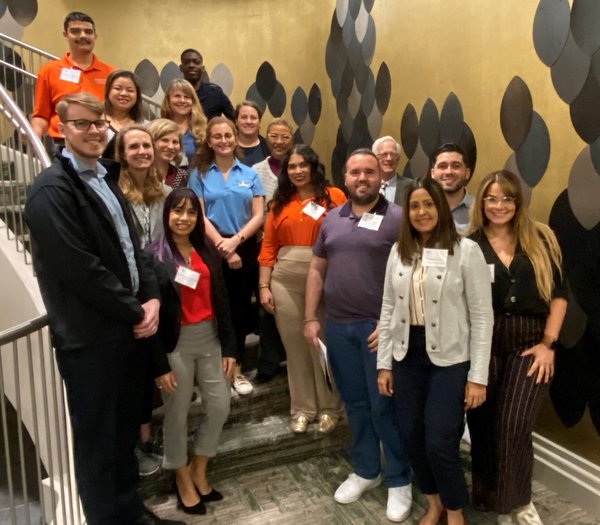
“Over the years this continuing education program evolved into a vehicle to provide low cost opportunities for professional development,” said Dr. Thomas E. Bernard, USF College of Public Health professor and Sunshine ERC center director. “The scope of the center also increased with pilot project research training and more opportunities for interdisciplinary activities.”
According to Bernard, USF COPH’s Drs. Yehia Hammad, Stuart Brooks and Pete Rentos had a vision for starting a NIOSH-supported education and research center that would be the first new center in a decade.
“As funded, the Sunshine ERC was the umbrella for industrial hygiene, occupational medicine and occupational health nursing with a nascent continuing education program. We then added occupational safety and occupational health psychology (OHP)—the first ERC to have an OHP program,” he said.
Bernard and Dr. Candance Burns of the College of Nursing, assumed leadership of the Sunshine ERC in 2008.
According to Bernard, with growing support from NIOSH, the Sunshine ERC affiliated with the University of Puerto Rico (UPR), expanded interdisciplinary activities and enhanced outreach into underserved populations.
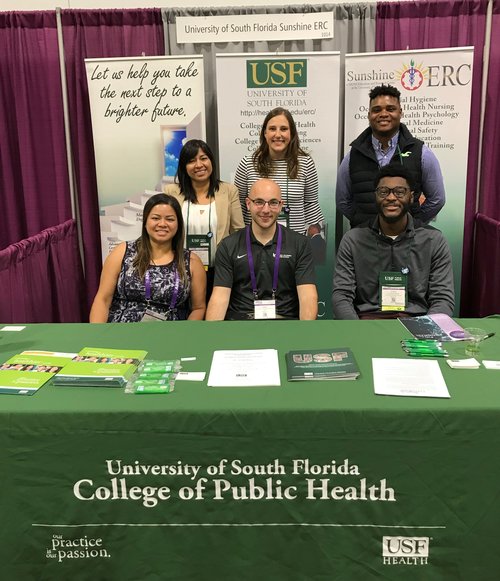
“This momentum carried us into the current funding cycle with the addition of UCF to support research training directed at the hospitality industry, Embry-Riddle Aeronautical University for a new vision of occupational safety, and programs with UPR in disaster resilience for workers. Further, we now have a supported online program in health, safety and environment,” Bernard said.
The Sunshine ERC focuses on providing training that reflects the needs of key industries in Florida and emerging issues of the nation.
“Students in the Sunshine ERC receive solid training in their chosen field,” Bernard said. “The real value-added is further experience in interdisciplinary activities to better prepare them for the practice of occupational health, safety and wellness.”
Trainees spend time with peers from across disciplines in public health, nursing, and medicine at USF, psychology at USF and UCF, hospitality at UCF, and aviation at Embry-Riddle, according to Bernard.
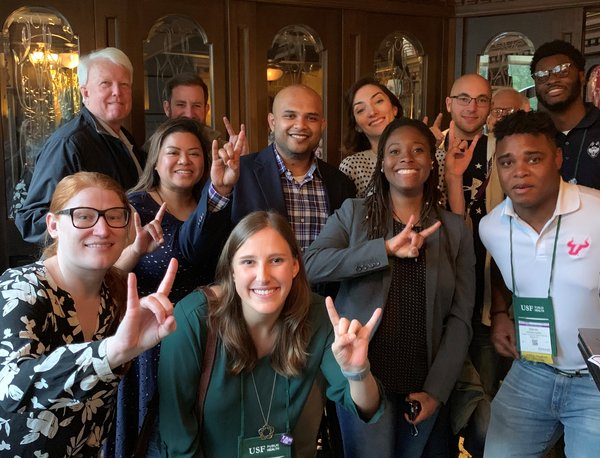
“Each trainee is enrolled in a degree program within their institution,” Bernard said. “It is the interdisciplinary experience that takes them beyond their specific discipline.”
For example, Bernard explained, trainees are expected to attend one ERC-wide session that provides information of interest to all.
“This varies a little and includes responsible conduct of research, general principles of occupational health, safety and wellness, and team building exercises,” he said.
Trainees are also encouraged to attend national symposiums and also contribute and participate in research projects sponsored by the ERC and its faculty.
Zach Brandes-Powell, a second year occupational exposure science student in the COPH, said the Sunshine ERC has expanded his experience level as a student.
“The mentoring and encouragement of the professors and members of the ERC have helped to push me to do things I wouldn’t have thought I was capable of with my current level of experience,” he said. “For example, through the ERC’s support, I was able to co-present on the benefit of internships for occupational safety and health students and professionals at the American Industrial Hygiene Conference and Exposition (AIHCE). With their encouragement, I also started to offer to tutor students taking industrial hygiene related courses. These opportunities have helped me to develop skills that will be beneficial to me in life and throughout my career in occupational safety and industrial hygiene.”
Brandes-Powell said going to AIHCE 2019 has been a highlight for him.
“We were able to meet students from ERCs around the country and interact with alumni of the program. The impact that the ERC has on its students was evident as the current students instantly found common ground with the alumni when talking about our courses and projects,” he said.
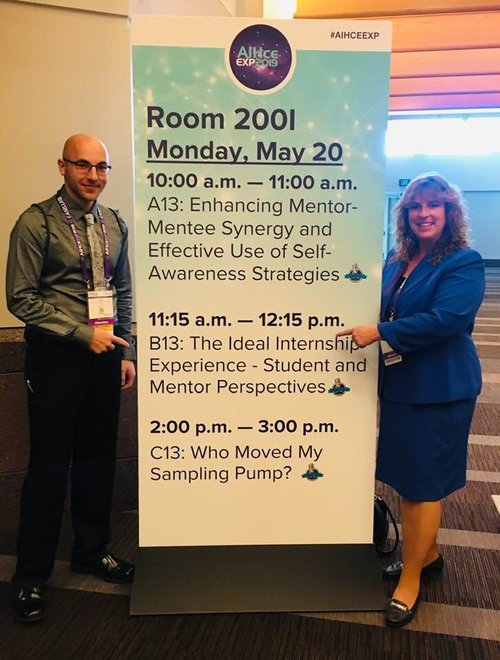
Miriam Escobar, also a second-year occupational exposure science student in the COPH, said the Sunshine ERC has helped her expand her networking abilities with professionals from other disciplines.
“Now, I am part of a diversified professional network with a common goal to improve the safety and health of others in various occupational industries,” she said.
She said the highlight of her experience so far has been the ability to participate in the Puerto Rico Resiliency focus group research.
“I was able to travel to Puerto Rico and hear first hand how the hospitality community was not only affected by hurricane Maria but also come together and prevail,” Escobar said.
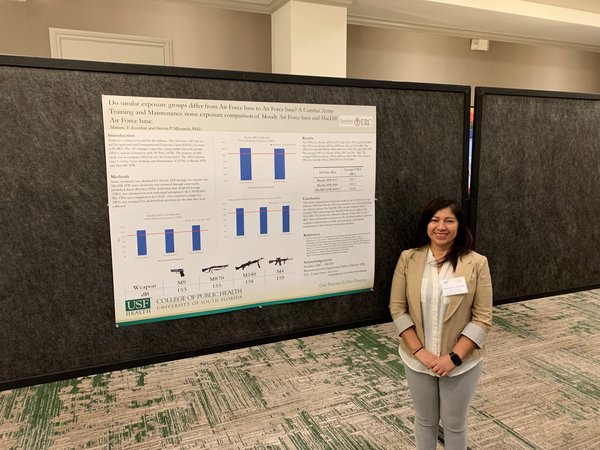
Currently, the Sunshine ERC is supporting four COVID-19 research projects through its program development fund, according to Bernard, three at USF and one at UCF.
Bernard said that while the Sunshine ERC focuses on students within the ERC disciplines, they have started to also engage students and faculty interested in disaster management.
“If students have an interest they should contact me or Ms. Kelly Freedman and we will see if there is an opportunity with current projects,” he said. “We would welcome and support expenses for some students outside the ERC to participate in interdisciplinary activities.”
Story by Anna Mayor, USF College of Public Health
